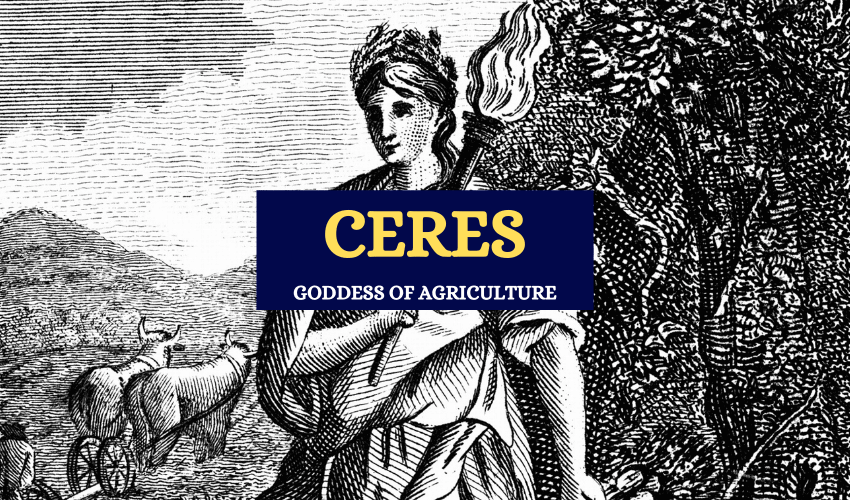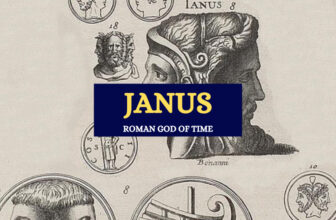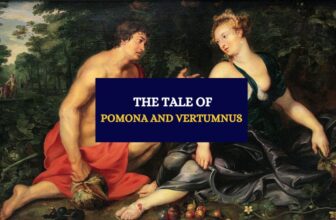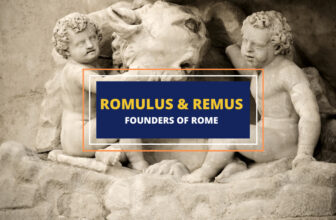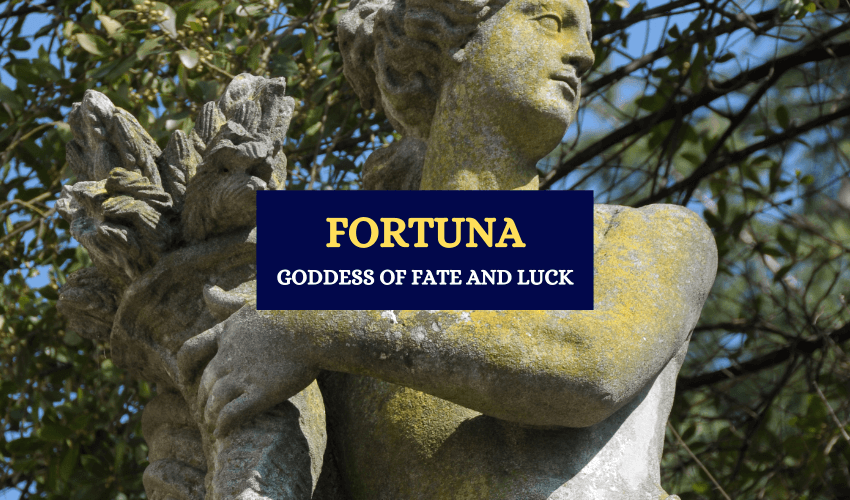
Table of Contents
In Roman mythology, Fortuna was the goddess of fate, fortune and luck. She was sometimes perceived as the personification of luck and a figure who dealt out fortune without bias or discrimination. She’s often associated with Abundantia, the goddess of prosperity, and the two were sometimes depicted in similar ways.
Who Was Fortuna?
According to some accounts, Fortuna was the firstborn of the god Jupiter. In the Romanization of the Greek myths, Fortuna became associated with the Greek goddess Tyche. However, some sources believe that Fortuna might have been present in Italy prior to Greek influence and possibly since the beginning of the Roman Empire. According to other sources, it’s possible that even preceded the Romans.
Fortuna was initially a farming goddess who had associations with the prosperity and fertility of the crops and the harvest. At some point, she became the goddess of chance, luck, and fate. Her change of role might have appeared with the Romanization of the goddess Tyche.
Below is a list of the editor’s top picks featuring the statue of Fortuna goddess.
Role in Roman Mythology
Fortuna was associated with agriculture, and many farmers worshipped her to receive her favor. Fortuna was in charge of providing fertility to the land and giving prosperous and abundant harvests. These traits also extended to childbearing; Fortuna influenced the fertility of mothers and the birth of babies.
The Romans did not think of Fortuna as entirely good or bad, since fortune could go either way. They believed that chance could give you plenty of things as well as take them away. In this sense, Fortuna was the very personification of fortune. People also regarded her as an oracle or a deity who could tell the future.
The Romans were interested in gambling, so Fortuna became the goddess of gambling too. Her role in Roman Culture became stronger as people prayed for her favor in many scenarios of their lives. Her powers influenced life and destiny.
Worship of Fortuna
The principal worship centers of Fortuna were Antium and Praenestre. In these cities, people worshipped Fortuna in many regards. Since the goddess had many forms and many associations, the Romans had specific prayers and epithets for the type of luck they needed. Apart from these worship centers, Fortuna had several other temples throughout the Roman Empire. The Romans adored Fortuna as a personal goddess, the giver of abundance, and a goddess of the State and the fate of the entire Roman Empire.
Representations of Fortuna
In many of her depictions, Fortuna appears bearing a cornucopia to symbolize abundance. This is similar to how Abundantia is typically depicted – holding a cornucopia with fruits or coins spilling out of its end.
Fortuna also appears with a rudder to represent her control over destiny, and sometimes is depicted standing on a ball. Due to the instability of standing on a ball, this idea symbolizes the uncertainty of fortune: it can go either way.
Some portrayals of Fortuna showed her as a blind woman. Being blind carried the idea of giving luck to people without bias or prejudice, much like Lady Justice. Because she couldn’t see who was receiving the fortune, some had better fortune than others by chance.
The Different Forms of Fortuna
Fortuna had a different identity in each of the main areas that she presided over.
- Fortuna mala was the representation of the goddess for bad fortune. Those who suffered the powers of Fortuna Mala were cursed with misfortunes.
- Fortuna Virilis was the representation of the goddess for fertility. Women adored and worshipped the goddess to have her favor and get pregnant.
- Fortuna Annonaria was the representation of the goddess for the farmers and the prosperity of the crops. The Farmers prayed to this goddess to have her favor and have abundance in their harvests.
- Fortuna Dubia was the representation of the goddess for the luck that also brings consequences. It is a dangerous or critical fortune, so the Romans asked for Fortuna Dubia to stay away from their lives.
- Fortuna Brevis was the representation of the goddess for quick luck that did not last. The Romans believed that these little moments of fate and decisions with fortune could influence life to a great extent.
Fortuna in Roman Britain
When the Roman Empire stretched its frontiers, so did many of their deities. Fortuna was one of the goddesses to take the leap and influence Roman Britain. Many gods of Roman mythology mixed with deities that already existed in Britain and remained significant there. There is evidence of Fortuna being present as far north as Scotland.
The Romans liked to build worship places for their most significant deities wherever they went. In this sense, the fact that there were altars in Britain and Scotland shows how venerated Fortuna might have been in Rome. Many deities did not travel as far as Fortuna did.
Significance of Fortuna
Fortune was not something easy to control; people could not but pray and hope for the best. The Romans believed that one could be either blessed with luck or cursed with misfortune. There was no grey area when it came down to distributing luck.
Since Fortuna appears blind in many portrayals, there was no order or balance on who got what. Her powers worked in strange ways, but they influenced everything with which they had to do. The Romans held Fortuna in high esteem since they believed luck was a central part of destiny. Depending on the blessings or misfortunes received, life could have different outcomes. In this sense, Fortuna was a central figure for this civilization and their daily affairs.
This goddess might have influenced how we perceive luck nowadays. In Roman tradition, when something good happened, it was thanks to Fortuna. When something wrong happened, it was Fortuna’s fault. The Western concept of luck and our understanding of it could have derived from this belief.
In Brief
Fortuna had an enormous influence in the daily life in the Roman Empire. Her powers and her associations made her a beloved yet, in some cases, ambivalent goddess. For this and more, Fortuna was one of the remarkable goddesses of antiquity.







